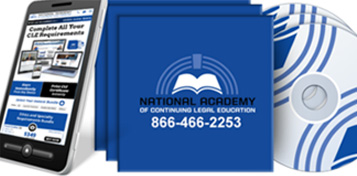About This Course
Section 230 of the Communications Decency Act (“CDA”) grants immunity from civil liability to the heads of online social media companies, empowering them to delete, modify or censor material they deem “objectionable,” or even ban or de-platform individuals at their discretion. They can do all this even if the material deleted “is constitutionally protected.”
Since online platforms have become a main source of information for most of the world, this means that a few individuals are the gate keepers for discourse among billions of people. It’s not an exaggeration to say they are literally Kings of the Internet. The question addressed by this CLE is whether Congress by enacting Section 230 can constitutionally grant such awesome power to a few individuals. Does the 1st Amendment allow such delegation of power?
We’ll approach the answer by first reviewing the limits of 1st Amendment speech in traditional media. What criteria have been applied to voice, print, radio, and television? Under the law, what is the procedure we take to determine whether speech is protected speech under the 1st Amendment or whether it can be justifiably suppressed?
Then, we’ll address the Internet and Section 230. We’ll review some of the issues arising from the application of Section 230 by the heads of social media platforms. Finally, we’ll need to answer the question of whether Section 230 of the CDA, which was enacted in 1996 at the nascent state of social media growth, is an effective law for governing the dialogue and discourse of the billions of users now on social media platforms. In other words, did Congress when it enacted this law in 1996 have any idea of what this legislation would be asked to accomplish when Facebook did not even exist until 2004 and now has 2.7 billion users?
*This course qualifies as a Transitional course and can be taken by both Experienced and Newly Admitted attorneys in NY.






